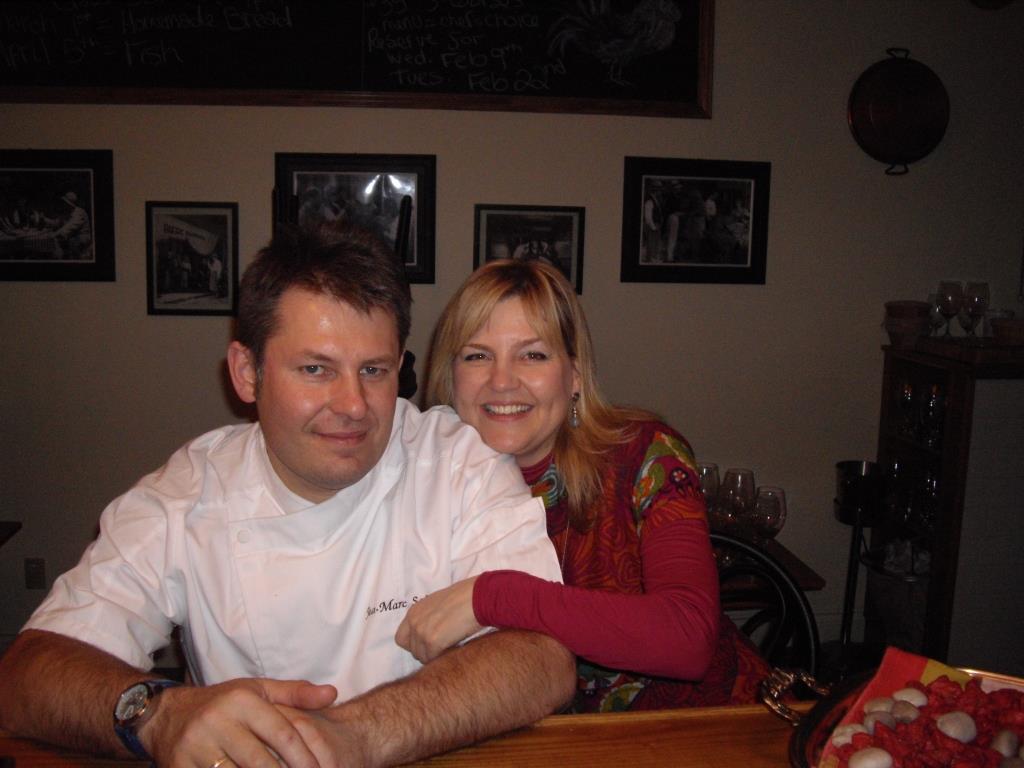Certainly the arrival of COVID-19 was a roller coaster ride for everyone, including businesses and different professions. Today, we will hear from four (4) people who work in different industries and professions, all with a different perspective on how they managed or how they have had to change.
First up was Ashley Rushnell who is part of the family business, Rushnell Family Services. They are governed by the Bereavement Authority and received the heads up about a large outbreak from a funeral held in Newfoundland with several hundred people sick. The funeral folks are used to flu outbreaks and dealing with long term care facilities who lock down because of the flu. The business stayed open and operational with a limited number of people allowed to come in with most arrangements and paperwork encouraged to be done on-line. Very strict restrictions. Families could not approach the casket, no prolonged dispositions were allowed, people were not allowed to attend visitation and then leave and return, family members could not say goodbye. Now ten people are allowed in and a service can be done with the same 10 people in attendance. Graveside service also limited to 10 people. Funerals can be done via zoom as well or by drive through. In the future, they will be encouraging on-line arrangements as it is more efficient. Booking 1/2 hour time slots is also a good idea and more efficient. Ashley is hopeful that the limit of 10 people will change as it is hard to tell loved ones, only 10 people can attend. Everyone grieves differently and these restrictions cause additional stress and emotion.

Jean-Marc and Sheranda Salvagno are the owners of L'Auberge de France, a French bistro in the heart of downtown Belleville. The community support from local customers was very appreciated and helped local businesses continue to operate in some fashion. This was huge for them. They had to continually think outside the box, what do customers need. They developed menus for take out meals on Friday and Saturday that were successful. They will put out a few tables now that patios are allowed to be open. Their main goal is how to market locally and bring people to their shop to buy the best quality and variety of food. One stop shopping so to speak. They provide lunch dishes, homemade dinners, ice cream. They do not plan on opening up as a sit down restaurant. They will have a take out window and are trying to think six months ahead, thinking about and providing a delivery service for older people on a Saturday afternoon. The downtown group have worked collectively to promote local shopping and eating. The restaurant business is unique with a small profit margin.
The changes in the grocery industry happened very quickly according to Wayne Dewe, the owner of Dewe's Independent. Grocery stores were identified as essential businesses and allowed to say open. The number one priority was keeping their employees safe in order to say open. Wayne took us on a virtual tour of the store and the upgrades done to ensure safety for all. Social distancing was put in place to restrict the number of people in the store (limit is 60). Anyone returning from outside of Canada were not allowed in. Hand sanitizer was provided. Shopping carts are cleaned after each use. The service of PC Express (ordering groceries online and picking up at the store) went from 21 orders a day to 50 or 60 orders a day. They had to order more coolers and freezers. Never anticipated the growing service of on-line shopping. One family member allowed in the store. Plexiglass was installed to protect staff. Floors are marked to ensure social distancing. A staff member assigns shoppers to a certain check-out. The line up area is well defined. Pin pads are cleaned after every order is complete. Some supplies are short due to delivery delays. They closed down certain fresh things like olives, cake counter, fish cases, gourmet meat. They are now packaged and available, but not handled by the customer. The biggest challenge will be in the Fall when the weather changes and people are still lining up outside the store. How will that be managed. Hours of operation were cut in order to ensure proper cleaning everywhere. It was chaotic, but calmer now. The store manages 18,000 to 19,000 transactions every week. The majority of staff are wearing masks and the standards that have been set will stay in place for food safety. The store provides a continued, good variety of produce, bread, although there are some things in short supply such as groceries made outside of Canada as they are used first in the U.S. before being shipped to Canada. Challenging times for sure.
Kelly McKinney said the first two months during COVID-19 were busier than ever. As an insurance broker, their clients include retail, restaurants, bars, travel companies and everyone had to learn how each was affected. It was a rough go for many, but somehow everyone pivoted. As an insurance broker and the middle man, many clients were disappointed with how insurance companies were able to help people with rebates. Everyone had to share the pain, fight to get coverage and Kelly had to make a case for companies he represented. Forecasting revenue was very difficult, if not impossible. With 440 staff in 37 offices, human resources was on a steep learning curve. Trying to provide technology for people to work remotely was a nightmare for their IT staff. And now the challenge is to bring people back to their offices, safely, many with health and childcare issues. With the company's focus on customers, staff need to be back in the office, but clearly many like working from home.
President Doug thanked today's speakers for their input during challenging times.
